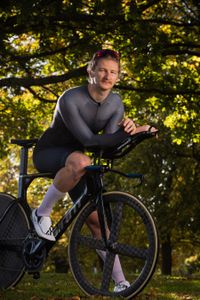‘No evidence’ that Richard Freeman used testosterone to dope a rider, tribunal hears
Freeman’s legal representative said the General Medical Council had not been able to provide the name of any rider in the case


Dr Richard Freeman (second left) with QC Mary O'Rourke (left) and his defence team after appearing at a hearing at the misconduct hearing (Picture: PA Wire/PA Images)
The latest race content, interviews, features, reviews and expert buying guides, direct to your inbox!
You are now subscribed
Your newsletter sign-up was successful
There is “no evidence” that doctor Richard Freeman gave testosterone to a rider to dope, his medical tribunal has heard.
Former Team Sky and British Cycling doctor Freeman is facing a fitness-to-practice hearing over allegations he obtained 30 sachets of the banned substance with the intention of administering it to a rider to dope.
Freeman has admitted obtaining the 30 Testogel sachets but denies the product was intended for doping, instead saying he obtained it to treat his colleague Shane Sutton’s erectile dysfunction. Sutton denies this.
On Saturday (February 6), Freeman’s legal representation Mary O’Rourke QC gave her final submissions to the Medical Practitioners Tribunal Service hearing, being held in Manchester.
The Guardian reports that O’Rourke said: “Unless you have a document or an email saying: ‘I intend to do something,’ or he tells his wife or colleague: ‘I intend to use it to dope Sir Bradley Wiggins,’ or whoever, you haven’t got clear evidence or intent.
“Perhaps the Testogel went out the door, or in the sink. Maybe it did go off to somebody but they haven’t got a scrap of evidence to prove it. They can’t.”
Freeman’s Medical Practitioners Tribunal hearing, being held in Manchester, centres around allegations Freeman ordered 30 testosterone sachets, which were delivered to British Cycling headquarters in Manchester in 2011, and then lied to cover up the order.
The latest race content, interviews, features, reviews and expert buying guides, direct to your inbox!
He has admitted 18 of the 22 charges against him, but denies the banned substance was ordered for an athlete to dope, instead claiming he was “bullied” into ordering the testosterone by Shane Sutton to treat Sutton’s erectile dysfunction. Sutton denies this.
The General Medical Council, summing up its case against Freeman, recently claimed Freeman worked with “sleepers” in British Cycling and Team Sky to buy testosterone to help an athlete dope.
But O’Rourke said that Freeman had cooperated fully with the tribunal and hadn’t refused to answer any questions, adding that “he was not the slippery devious, dishonest monster which the GMC’s closing submissions suggested he was.”
The tribunal continues.
Alex Ballinger is editor of BikeBiz magazine, the leading publication for the UK cycle industry, and is the former digital news editor for CyclingWeekly.com. After gaining experience in local newsrooms, national newspapers and in digital journalism, Alex found his calling in cycling, first as a reporter, then as news editor responsible for Cycling Weekly's online news output, and now as the editor of BikeBiz. Since pro cycling first captured his heart during the 2010 Tour de France (specifically the Contador-Schleck battle) Alex covered three Tours de France, multiple editions of the Tour of Britain, and the World Championships, while both writing and video presenting for Cycling Weekly. He also specialises in fitness writing, often throwing himself into the deep end to help readers improve their own power numbers. Away from the desk, Alex can be found racing time trials, riding BMX and mountain bikes, or exploring off-road on his gravel bike. He’s also an avid gamer, and can usually be found buried in an eclectic selection of books.
